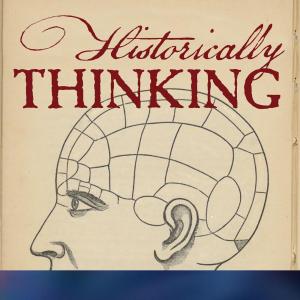Historically Thinking

Episode 387: The Study
In the sixteenth century wealthy men and women began to collect books. With these they began to furnish a new room in the house which they called the studiolo. In the “little study” one could read in happiness and contentment, safe from an external world beset by wars and plague. They could conduct conversations with their contemporaries by letter, and with the dead of past ages through their reading. The studiolo became an extension of their intellect, and of their personality. But the studiolo was also a place from which those religious and political conflicts were conducted. And the studiolo was, in the contemporary imagination, a place of potential madness. After all, it was reading in solitude that infected the brain of that noble gentleman Don Quixote de la Mancha; obsessive reading that undermined the power of Duke Prospero of Milan, and resulted in his exile on a far off island with his daughter Miranda; and reading that turned Dr. Faustus to seek power through a diabolical bargain. With me to discuss the studiolo in history and literature is Andrew Hui, Associate Professor of the Humanities at Yale-NUS College in Singapore. His most recent book is The Study: The Inner Life of Renaissance Libraries, which is the focus of our conversation today.






 Visit Podcast Website
Visit Podcast Website RSS Podcast Feed
RSS Podcast Feed Subscribe
Subscribe
 Add to MyCast
Add to MyCast